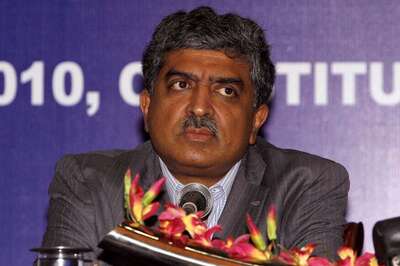
views
Called the ‘Big Bull of Indian stock markets’, investor-billionaire Rakesh Jhunjhunwala, 62, died on Sunday, barely a week after Akasa, the newest budget air carrier in the market he had backed, took to the skies for the first time.
Jhunjhunwala was India’s 36th richest individual and was often revered by investors for his sharp and insightful market observations.
His personal portfolio had stocks of 32 companies, with an estimated value of more than Rs 40,000 crore.
Here are some takeaways from Jhunjhunwala’s financial odyssey that you should swear by in your investment journey as well.
Start small. Don’t time the markets
The prolific investor was all of 25 years old when he began dabbling in the stock market. In 1985, when his tryst with markets began, he just had Rs 5,000 in hand. Over the subsequent 37 years, this amount rose to a whopping Rs 40,000 crore.
It was only in 1986 that the Bombay Stock Exchange started publishing Sensex’s values. Jhunjhunwala had entered the market when the Sensex stood at less than 500 points. This index, currently at 59,462 points, is a widely-accepted indicator of India’s financial health, tracking the fortunes and performances of India’s top 30 companies across various sectors.
What fuelled Jhunjhunwala’s financial success was his steadfastness in the market. He had said, “Nobody can predict weather, death, market, and women. The market is supreme, always commanding, mysterious, uncertain, indomitable, and volatile. Hence, it needs to be respected”.
Trying to time the markets to start investing is a futile exercise. Constantly waiting for the tides on the financial bourses to turn favorable can completely sideline you from every profitable and promising opportunity. You can start with amounts as low as Rs 1,000, but it is important to take the plunge
Be your own brand
Jhunjhunwala hated any and every instance of being compared to the iconic Warren Buffet. A Chartered Accountant, he has often been touted as the Indian equivalent of the Oracle of Omaha. “Not Warren Buffett, I am Rakesh Jhunjhunwala”, he used to say.
He was also a staunch believer in not succumbing to the mob mentality when it comes to buying stocks. “A big name has put his money on a certain company should not be the sole reason why investors should purchase its stock”, he had observed.
Jhunjhunwala believed that for generating consistent, long-term value, investing in companies with competitive management and strong fundamentals was necessary. His immense success with the Tata-backed Titan company, which constitutes the largest portion of his portfolio is testimony to that. In just over the last five years, Titan’s stocks have soared by around 300%.
No two investors in the stock market will share the same goals. That is why it becomes important to distinguish your investment decisions by not blindly basing them on what’s popular and trending at present. Your portfolio should exclusively be a vehicle that facilitates the achievement of your long-term wealth-creation goals.
Take risks
When Jhunjhunwala started out, his father, who was an income tax officer, had forbidden him to take loans from his friends for his market endeavors.
But the risk-taker that he was, his initial capital consisted of high-interest loans from his acquaintances. After he found his footing in the markets, earning Rs 30 crore as one of his first major profits, he was successful in paying them off with handsome interests.
The ace investor was once questioned for backing Akasa during the pandemic when the aviation sector was going south. Jhunjhunwala had replied. “I am prepared for losses”. According to him, losing money during your investment journey is part and parcel of being in the stock market. As he succinctly put it, “You cannot make profits in the stock market unless you have the ability to bear losses.”
However, he always emphasized the importance of knowing what to stake and risk. Losses are inevitable. Markets demand a leap of faith and risk-taking when it comes to investments. What separates a wise investor is knowing how much they can afford to lose.
Read the Latest News and Breaking News here




















Comments
0 comment